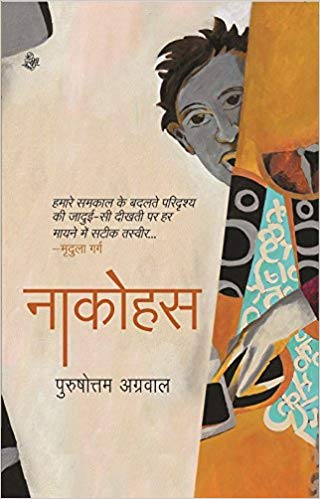Dreams and reality merge in this 2016 dystopian novel by the well-known Hindi satirist and writer Purushottam Agrawal. The novel begins when a crocodile leisurely walks down a small street and begins to chew on the leg of an elephant who happens to be lying there. No one seems to notice. Then Suket, our protagonist, wakes from this disturbing dream, reaching for a glass of water. It is 3 a.m. In the next scene, over two hundred students are protesting Professor Suket for being ‘anti-national’. ‘Murdabad, murdabad! National sentiments hurt karne valon ko—joote maro salon ko!’ (Death to those who hurt national sentiments—throw shoes at those bastards!)
Agrawal’s novel is located right in our contemporary moment, in which threats to free speech and violence against secular and progressive writers have intensified. The assassination of Kannada writer MM Kalburgi in 2015 and the Award Wapsi movement that followed have only been confirmed by the figurative death of Perumal Murugan that year and the murder of Gauri Lankesh in 2017. All these events confirm a lawless, dystopian reality where open debate and discussion are seen as a threat to cultural and religious values, a situation that Agrawal brutally criticizes in this novel.
This is enshrined, in Nacohus, in the eponymous fictional ministry, the National Commission on Hurt Sentiments (Na+co+hu+s) whose stooges kidnap Suket and his two friends, Raghu and Shams, in order to teach them a lesson for their refusal to honour the sanctity of communal sentiments. Shams and Raghu wrote an article called ‘The Right to Blasphemy’, arguing that human progress is based on dialogue and the continual pursuit of an elusive truth, which might occasionally include questioning long-held religious beliefs. A democratic country should be open to such self-questioning and self-criticism. But Nacohus was established precisely to combat such a pursuit. For them, democracy means defending your sentiments from being hurt by others, at whatever cost: a world in which goli matters more than boli.

